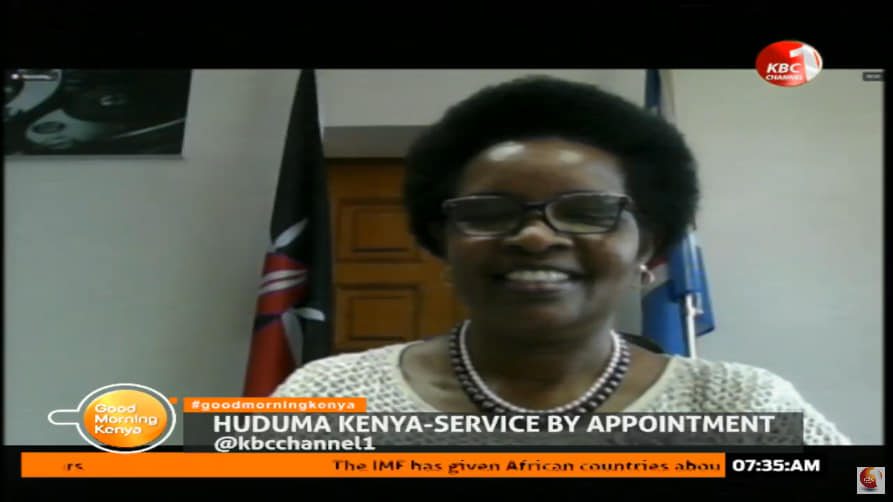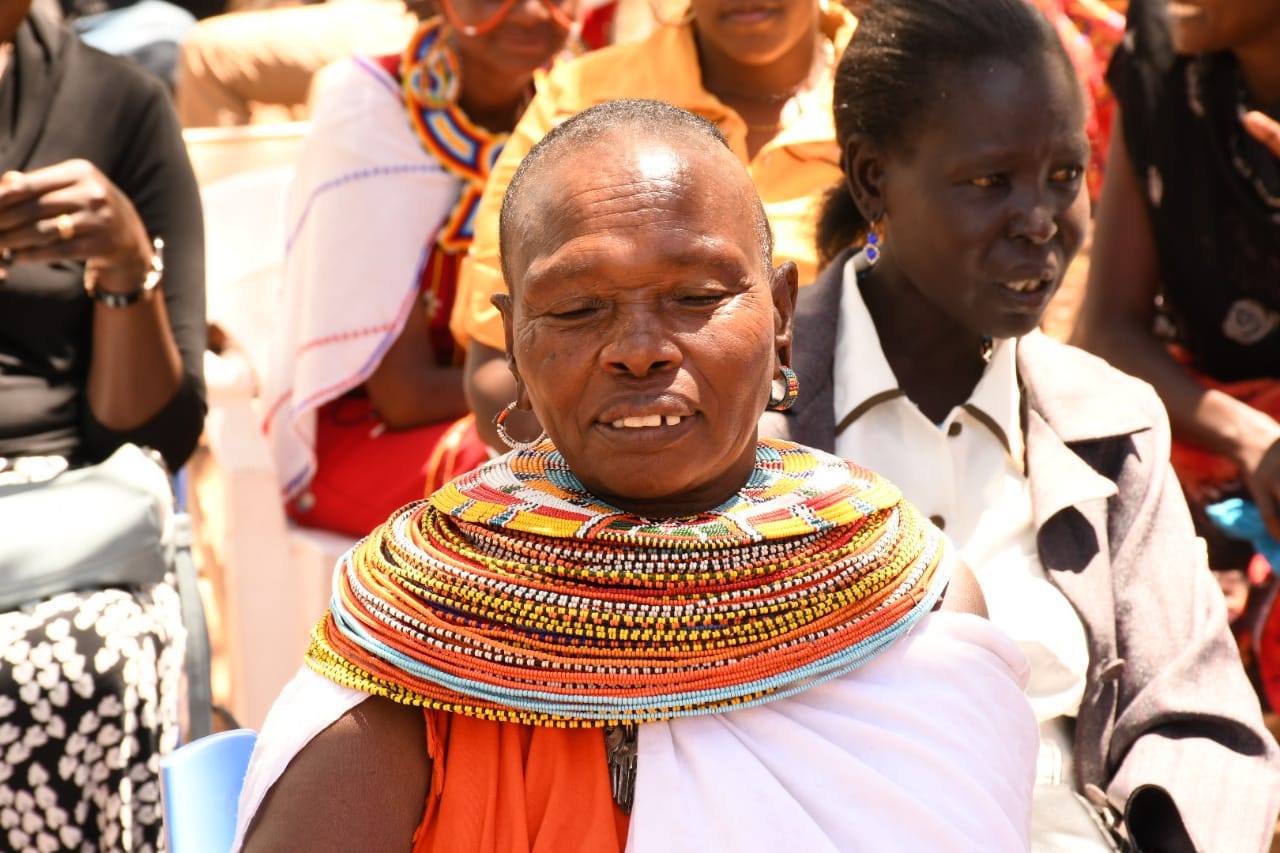Over the years, Kenya’s public service has been viewed as slow in service delivery and basically reluctant to change and improvement. However, contrary to this view, the current public service is undergoing immeasurable number of reforms, as the Principal Secretary for State Department for Public Service, Mrs. Mary Kimonye explained to MyGov’s Michael Okidi in an interview, excerpts of which are reproduced here.
In the structure of Government, what function does the State Department for Public Service play?
The State Department for Public Service provides strategic leadership and policy direction in Public Service Management, Human Resource Management and Performance Management. The State Department provides policy advisory and guidelines that propels the Public Service in Kenya to deliver efficient, effective and ethical services to citizens.
Historically, it has been at the center of government since independence. From 1963 to 2006 as the Directorate of Personnel Management in the Office of the President; from 2006 to 2013 as the Ministry of State for Public Service in the Office of the President and later in the Office of the Prime Minister; from 2013
to 2018, it was restructured as the Directorate of Public Service Management in the Ministry of Devolution and Planning. Then in the Executive restructuring of 2018 it was established as the State Department for Public Service and Youth under the Ministry of Public Service, Youth and Gender.
It gained its present structure following the reorganization of National Government vide Executive Order No. 1 of May 2020, which placed it as a State Department under the Ministry of Public Service and Gender.
As the oversight agency for the entire civil service, it would seem to play a very significant role in government. More specifically, what is your mandate?
The State Department consists of several units that facilitate the management of the entire public service body as we know it.
First, there is the Public Service Performance Management and Monitoring Unit, which manages Performance Contracting in all the ministries, departments and state agencies. Second, we have the Human Resource Management Policy Unit, which manages the entire human resource function within Government in terms of policy direction. Third, there is the Human Resource Development Unit that deals with matters of capacity building, training and development of the human resources within the public sector. We have the Public Service Management Advisory Services that advises public sector entities on reforms and transformation, organizational structure, job analysis and evaluation, payroll management as well as how to mainstream research and innovations.
Then there is the Counselling unit which has overall responsibility for the coordination and management of psychological counseling services across the entire public service sector. Besides these functional units, the State Department also oversights three Government agencies: the National Youth Service that offers para-military and community service training to our youth, The Kenya School of Government whose mandate is to offer management training, research, consultancy, and advisory services to the public sector and finally the Huduma Kenya Programme, which acts as the face of Government services and ensures government services are accessible and effectively delivered to wananchi across the country.
You have been talking about public service reform as a priority in your administration. What reforms have you undertaken so far?
Since the start of the Jubilee administration, the reform agenda has been extensive. Most notable is the Huduma Kenya Programme which is a one-stop-shop for government service delivery, now firmly established in all the counties. In essence automation has been a key reform driver with recent reforms including operationalization of a Unified Payroll Number (UPN) system that uniquely identifies and tracks public servants from entry to exit. Government Human Resource Information System (GHRIS) has consolidated all human resource functions and processes. The department has also automated the Performance Contracting, Monitoring and Evaluation cycle which was previously a manual system. Records has also been digitized.
We have been adaptive and responsive as needs have arisen. For instance we have developed and operationalized guidelines on alternative work arrangements including working from home to ensure continued government business during COVID-19 pandemic. Simply put, reform and transformation is part of the DNA of the State Department.
A mention of Government Human Resource Information Systems creates a picture of a public service that has gone digital. To what extent has this digitization been successful?
The State Department spearheaded development of the Government Human Resource Information System (GHRIS) from the year 2012.
GHRIS has automated HR functions and services from recruitment to separation including generation of payroll numbers for new employees in Ministries/Departments and County Governments. The system has also automated the Performance Appraisal System.
GHRIS has consolidated the entire human resource data in the Public Service and interfaced the data with other Government systems such as Integrated Financial Management Information System (IFMIS), Pension Management Information System (PMIS), iTax, Teachers Service Commission Human Resource Management Information System (HRMIS) and Integrated Population Registration System (IPRS), among others
Not very long ago, some public sub sectors, especially former local authorities, were found to condone the existence of ghost workers in their payrolls. Can you say the introduction of the GHRIS and payroll management systems have eliminated this vice?
The Integrated Payroll & Personnel Database (IPPD) is a computerized system which is used by Ministries/ Departments, Counties and Government Agencies to process their payrolls. The IPPD system has enhanced accountability in payroll management since erroneous entries can easily be attributed to an individual officer with 100% certainty.
The Department undertakes regular upgrading of IPPD System. The state department also undertakes regular payroll audit for Ministries/Departments and Counties
with a view to identifying any irregularities on the set human resource rules and procedures. Irregularities include unauthorized payments and presence of ghost workers. The objective of the payroll audits is to improve compliance with effective payroll management.
Further to this, the State Department has developed and implemented the Unified Payroll Number (UPN) System. This system enables employees to have only one identifier throughout their stay in the public service and therefore prevents double allocation of payroll numbers and eliminates the possibility of employees to be in multiple payrolls.
You mentioned counseling as one of the sub-sectors within your mandate. Now, in the face of the Corona virus pandemic, what service do you have for public servants affected by Covid-19?
His Excellency the President directed that we assess, diagnose and manage the mental well-being of public servants, especially those affected or in the frontline of tackling Covid-19. The state department has provided tele-guidance/counseling services, and psychological First Aid (PFA) to public servants as first responders.
The state department also established counseling outreach programs in the counties. For sustainability and wider reach, we identified and capacity-built Public Service Mental Health Champions in Ministries/ Departments equipping them with essential counseling skills. We are conducting mental health screening/ assessment/survey and establishing a mental health wellbeing dashboard for effective monitoring and evaluation.
There have been complaints of certain cadres of civil servants getting faster promotions than others. Are these complaints legitimate and if so, is the State Department doing anything in mitigation?
The state department has developed new guidelines for career management in the Service in consultation with Public Service Commission and other stakeholders. This was done on the basis of job families to ensure uniformity in their implementation. We have also identified cadres without schemes of service and developed their career guidelines accordingly. This has been extended to the counties to ensure that standards for selection, recruitment and advancement are maintained across board.
On Huduma centers, what milestones can you say have been achieved through this relatively new service delivery system?
Since its formation in 2013 the programme has expanded to all the counties with 52 centres in total. In the seven years of its existence the programme has managed to serve a total of 51 million customers. It has established several service channels to reach wananchi where they reside. There is Huduma Mashinani – a mobile outreach programme that brings services to the grassroots; Huduma Contact Centre whereby citizens can call in and enquire about government services; and Huduma Mobile Application that allows citizens to access government services from the convenience of their mobile devices. We are realizing the concept of Huduma Popote through digitization and automation.
We recently launched the Service by Appointment (SBA), which enables citizens to make online booking of services well in advance wherever they are, and only come to the centre at the appointed hour. We are soon rolling out a new online document tracking solution, which will enable citizens track the status of their documents without having to make several visits to centers.
Huduma Kenya has transformed how government services are offered and has enhanced the trust between citizens and government. It is a most trusted customer-centric public service brand with a satisfaction level of 95 – 97% as per the last survey conducted.
The centers have started online bookings for services. What is your early bird assessment of this system?
Our early assessment of the Service by Appointment system, is that it will enable us to manage the high numbers of citizens visiting the centers. It will also reduce the waiting time for services while ensuring adherence to COVID-19 protocols. The pilot at GPO Huduma Centre has been successful. The Centre serves an average of 5,000 citizens daily, and the system has helped to eliminate the crowds and long queues that were the norm.
The Kenya School of Government is another agency under your department. What role does it play in Public Service Management?
The School is responsible for capacity development of public servants through training, policy research and consultancy services. In the school, public servants acquire leadership and management competencies that contribute to improved performance and productivity.
This is evident through continuous adoption of best practice in all the spheres of the service including performance management system; strategic plans, innovative service delivery and business process re-engineering.
Public officers upon training are able to drive positive change and enhance efficiency and effectiveness in service delivery. Training in public administration contributes to reduction of resource waste, red tape, duplication of roles and skills misalignment. The school serves as a knowledge management institution for public servants.
The National Youth Service (NYS) has undergone changes under its new council. In respect to this, what achievements have been registered by the service, in terms of community service projects and programmes.
Part of the NYS mandate is to undertake national development tasks and assist in national emergencies. Some of the national tasks that NYS has taken part in include locust control and rehabilitation of the old railway line running from Nairobi to Nyahururu to Nanyuki as well as rehabilitation of the Kisumu Port.
The service has also been active in the containment and mitigation of COVID-19 providing security and logistical support to the containment efforts. It has stitched over one million masks for distribution to the vulnerable population, and installed water tanks and provided water and soap in strategic areas in informal settlements. The service has re-invented itself under an independent oversight council and the past negative image and reputation of the service has changed. I am confident that it will continue to churn out patriotic, disciplined and committed youth ready to serve their country.
As published in MyGov, 20th October, 2020













